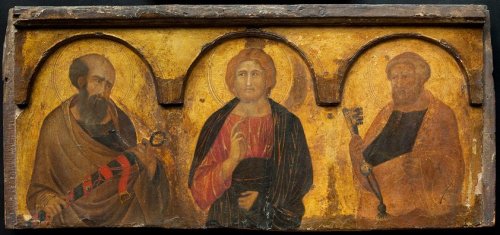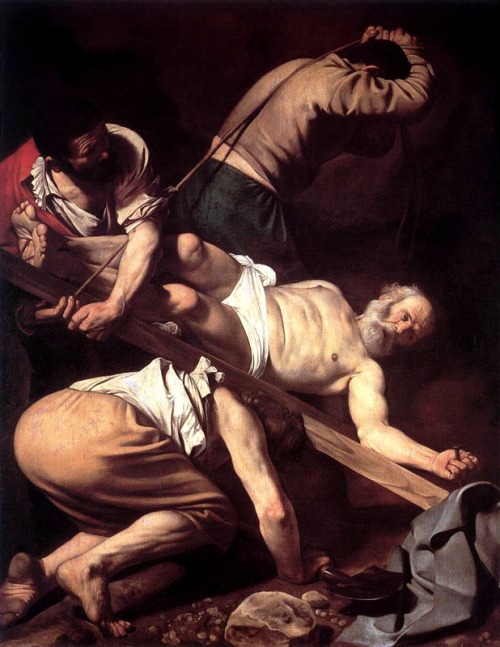
When people study the life of Jesus Christ, some are often confused by the assertion that he was born in 4 BC, meaning that he was born in the year 4 “Before Christ.” Intuitively, one would think that Jesus’ birth year should be AD 1; more precisely, during year 1 of the “year of our Lord” (“anno domini” is the proper Latin phrase and “AD” is it’s abbreviation for year designations). First, the confusion concerning Jesus’ birth year originates from several errors made by a 6th century Scythian monk named Dionysius, who was the originator of the designations BC/AD (you can find more information about him on the web). Dionysius, being a Christian monk, desired to create a new division of history that started with the year of Jesus’ birth. Obviously these designations were not used during Jesus’ earthly ministry. Ironically, Dionysius’s idea didn’t even catch on very quickly in his day. Nevertheless, as Dionysius calculated Jesus’ birth year, he made several critical errors. However, one should not castigate him too badly since the historical records available to him were not as accurate as those available to us today. Moreover, precision with respect to historical records was not as highly valued as it is today. Nevertheless, his mistakes are the origin of one of the greatest confusions in all of human history—literally. We all have bad days, but his takes the cake! Consequently, with respect to the year of Jesus’ birth, he was off by at least 4 years (I personally calculate Jesus’ birth as having occurred near the beginning of 4 BC). This particular estimation dovetails well with the final year of Herod the Great’s reign. Historical evidence indicates that during the final days of Herod the Great’s life, knowing that his death was nearing, he ordered that “all the principal men of the entire Jewish nation” be gathered into a stadium (i.e., the “Hyppodrome”) where they were to be executed for the purpose of ensuring that there was great mourning throughout the land upon his death.
Josephus documented Herod’s order in this manner:
“But now Herod’s distemper greatly increased upon him after a severe manner, and this by God’s judgment upon him for his sins; . . . and having no longer the least hopes of recovering, he gave order that every soldier should be paid fifty drachmae; and he also gave a great deal to their commanders, and to his friends, and came again to Jericho, where he grew so choleric, that it brought him to do all things like a madman; and though he were near his death, he contrived the following wicked designs. He commanded that all the principal men of the entire Jewish nation, wherever they lived, should be called to him . . . . he ordered them to be all shut up in the Hyppodrome, and sent for his sister Salome, and her husband Alexas, and spake thus to them: “I shall die in a little time, so great are my pains; . . . but what principally troubles me is this, that I shall die without being lamented, and without such mourning as men usually expect at a king’s death.” . . . He desired therefore, that as soon as they see he hath given up the ghost, they shall place soldiers round the hippodrome, while they do not know that he is dead; and that they shall not declare his death to the multitude till this is done, but that they shall give orders to have those that are in custody shot with their arrows; and that this slaughter of them all will cause that he shall not miss to rejoice on a double account; that as he is dying, they will make him secure that his will shall be executed in what he charges them to do; and that he shall have the honor of a memorable mourning at his funeral. . . . Now any one may easily discover the temper of this man’s mind; . . . since he took care, when he was departing out of this life, that the whole nation should be put into mourning, and indeed made desolate of their dearest kindred, when he gave order that one out of every family should be slain, although they had done nothing that was unjust, or that was against him, nor were they accused of any other crimes . . . .”[1]
Consequently, it is not a great stretch to imagine that Herod would have given a similar demented order to slaughter a few dozen male infants in the little hamlet of Bethlehem around this same time. An order that he gave upon receiving news that the Magi from the East (i.e., political emissaries from the Parthian empire) had evaded him while not providing to him the exact location of where the new born king of the Jews was born (cf. Matt. 2.1-18). Therefore, since most scholars date Herod the Great’s death as occurring in 4 BC, it seems that Jesus actual birth also occurred in either early 4 BC or very late 5 BC.
Another common mistake some make when calculating how old Jesus was when he began his public ministry concerns the number of years between BC and AD (or BCE and CE according to secular designations, primarily because they wish to minimize the impact that Jesus’ life had in today’s culture). One must not calculate an additional year by adding a “0” year between the years 1 BC and AD 1. Consequently, the transition from 1 BC to AD 1 is immediate, there is no “0” year in between them.
So with these issues in mind, when was Jesus born, how long was his public ministry, and when was he crucified? Luke wrote that Jesus was “around” 30 years old when he started his public ministry (Lk 3.23), which means that he could have been between 29 to 33 years of age (Luke was not trying to provide Jesus’ exact age). Consequently, if one assumes that Jesus began his ministry in AD 30, then it would mean he was approximately 33 years old at that time (assuming his birth was in 4 BC). A review of the Gospels reveals that at the very least Jesus’ earthly ministry was 2 full years, but more probably 3 full years (that is if one views John 5.1 as also referring to a Passover). However, his ministry could have lasted as long as 5 years (assuming that the Gospel writers did not record all of the Passovers that occurred during his earthly ministry). This longer period assumes that Jesus’ trial occurred during Pilate’s final year in office (which was AD 36). This estimation is the latest possible year of Jesus’ earthly ministry since Pilate oversaw the Roman portion of Jesus’ trial. However, it is not likely that Jesus’ trial occurred during Pilate’s final year in office. Consequently, assuming that Jesus was crucified in AD 33 (the most likely year of his crucifixion), then that would make him around 36 years old at his death and resurrection (assuming a full 3 years of public ministry; see the chronology below).
- 4 BC = Jesus was born.
- AD 30 = Jesus was around 33 years old when he began his 3 year public ministry.
- AD 33 = Jesus was around 36 years old when he was crucified and arose physically from the dead. Remember, his public ministry began near the Passover in AD 30 and it ended during the Passover in AD 33; thus, the estimate of a full 3 year ministry.
If one assumes that his crucifixion was in AD 30 (which is another reasonable possibility), then it means his public ministry began ca. AD 27 (thus Luke’s description that Jesus was around “30” since AD 27 + BC 4 = 30 years). Remember, being born in 4 BC only includes 3 years to 1 BC, not 4 full years. For example: 4-3 is one year, 3-2 is the second, and 2-1 BC is the final year, which equals 3 years. Afterwards, one’s calculations must begin immediately with AD 1. This alternative calculation means that Jesus was about 33 years old when he died and arose physically from the grave.[2]
- 4 BC = Jesus was born
- AD 27 = Jesus was about 30 years old when he began his 3 year public ministry.
- AD 30 = Jesus was about 33 years old when he was crucified and arose from the grave.
Please be aware that these are only estimations that are based on the historical records that are currently available. It is hoped that they help in clarifying some of the confusing issues concerning when Jesus was born; as well as when his public ministry began and how long it lasted; and finally, the year of his glorious resurrection.
[1] Josephus, Antiquities of the Jews, XVII.6.5-6.
[2] For explanations of astronomical calculations that point to Jesus’ crucifixion as occurring during the Passover in either AD 30 or AD 33, see D. A. Carson and Douglas J. Moo, Introduction to the New Testament, 2nd ed. (Grand Rapids: Zondervan, 2005), 126-27. For a more thorough explanation of these issues and more, see Harold W. Hoehner, Chronological Aspect of the Life of Christ (Grand Rapids: 1977).


